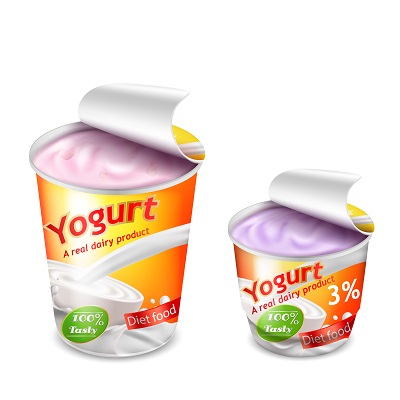 There is a long list of healthy foods that all dieticians agree on unanimously. But did you know that there are certain so called “health foods” that you should never eat?
There is a long list of healthy foods that all dieticians agree on unanimously. But did you know that there are certain so called “health foods” that you should never eat?
Here are 6 of the seemingly healthy foods that should not be in your daily diet:
1 – Vegetable Oils
Canola oil, for example, just as margarine, come from genetically modified plants and is highly inflammatory.
They’re chemically processed and oxidized which significantly add to free-radical damage in your body.
They’ve been linked to be the cause of many chronic diseases, as:
- Cardiovascular problems, mainly atherosclerosis
- Cancer
- Obesity
- Liver problems
- High cholesterol
2 – Protein Bars
Most of us buy protein bars and stuff them into our gym bags or hand bags as we head off to work, thinking that they’re healthier than a plain old candy bar. The truth is protein bars contain just as much sugar, and other ingredients that are on the shady side.
It can be disheartening to find out that your go-to snack is one of the reasons you’re not shedding those pounds. However, sadly enough, all the gimmick surrounding protein bars is just that – false advertising.
They rarely, if ever, contain the high amount of protein and amino acids they claim to have. What they do contain, however, is high levels of preservatives, additives, and harmful chemicals.
3 – Canned Vegetables and Soups
The problem here lies with the BPAs used in the manufacturing of these cans. BPA stands for bisphenol A, is an industrial chemical used to make certain plastics, and resins starting back in the 1960s.
Once vegetables and other food products are placed inside the cans, the food starts absorbing these chemicals, which are, needless to say, can result in a slew of chronic diseases and illnesses.
Other reason why canned goods are unhealthy is because they contain GMOs (genetically modified organisms), unless, that is, the come with an “organic” label, leaving you only with the BPA problem.
4 – Sport Drinks and Fruit Juices
They’re colorful, they’re delicious, and they also contain a ton of sugar – an ingredient that loads on the pounds and increases inflammation levels. Sugar is one of those seemingly innocent additives, but wreaks havoc on your organs. High amounts of sugar also increase the risk of cardiovascular diseases, liver damage, and diabetes, among others.
They way sport drinks are marketed is extremely misleading, giving you the impression that after a hard workout, drinking a sport drink will revive your energy, replenish your sodium levels and give you an edge.
The truth is they contain as much sugar, if not more than, any regular soda or fruit juice. Even the salt within them is of the questionable kind, mostly processed and refined substances pretending to be ‘real’ sea salt with natural electrolytes.
5 – Flavored Yogurt
All dietitians swear by plain yogurt, preferably organic or the Greek kind. It’s the colored, flavored yogurt they have a problem with. And the reason for that is because they contain artificial flavors as well as a heap of sugar to give it that delicious, yummy taste.
Even yogurt with a ‘light’ label will contain artificial sweeteners, which only spell disaster for your health. Plus, they’re unnatural and non-organic.
Instead, you can enjoy your plain yogurt by adding natural sweeteners that contain healthy nutrients, such as honey and molasses or you can even add your own favorite fruit to the mix, boosting the nutritional value by several notches.
6 – Fat-Free & Low-Fat Milk
A 2016 study published in The American Journal of Nutrition revealed that those who consume fat-free and low-fat dairy products are more likely to suffer from obesity, diabetes, and high cholesterol.
One reason is definitely the high levels of sugar in these products, which they add to hide the bitter taste. Another reason could be that whole milk helps people feel full for longer periods of time.
What’s even better is organic whole milk, which contains a healthier ratio of omega-6 to omega-3 fatty acids.
The problem with these types of foods that camouflage themselves as ‘healthy’ is that their packaging may be appealing with lots of promise, but what they do to your body is quite the opposite.
Make sure you read the list of ingredients on the packaging and try not to buy into the hype. Appearances can be deceiving.






